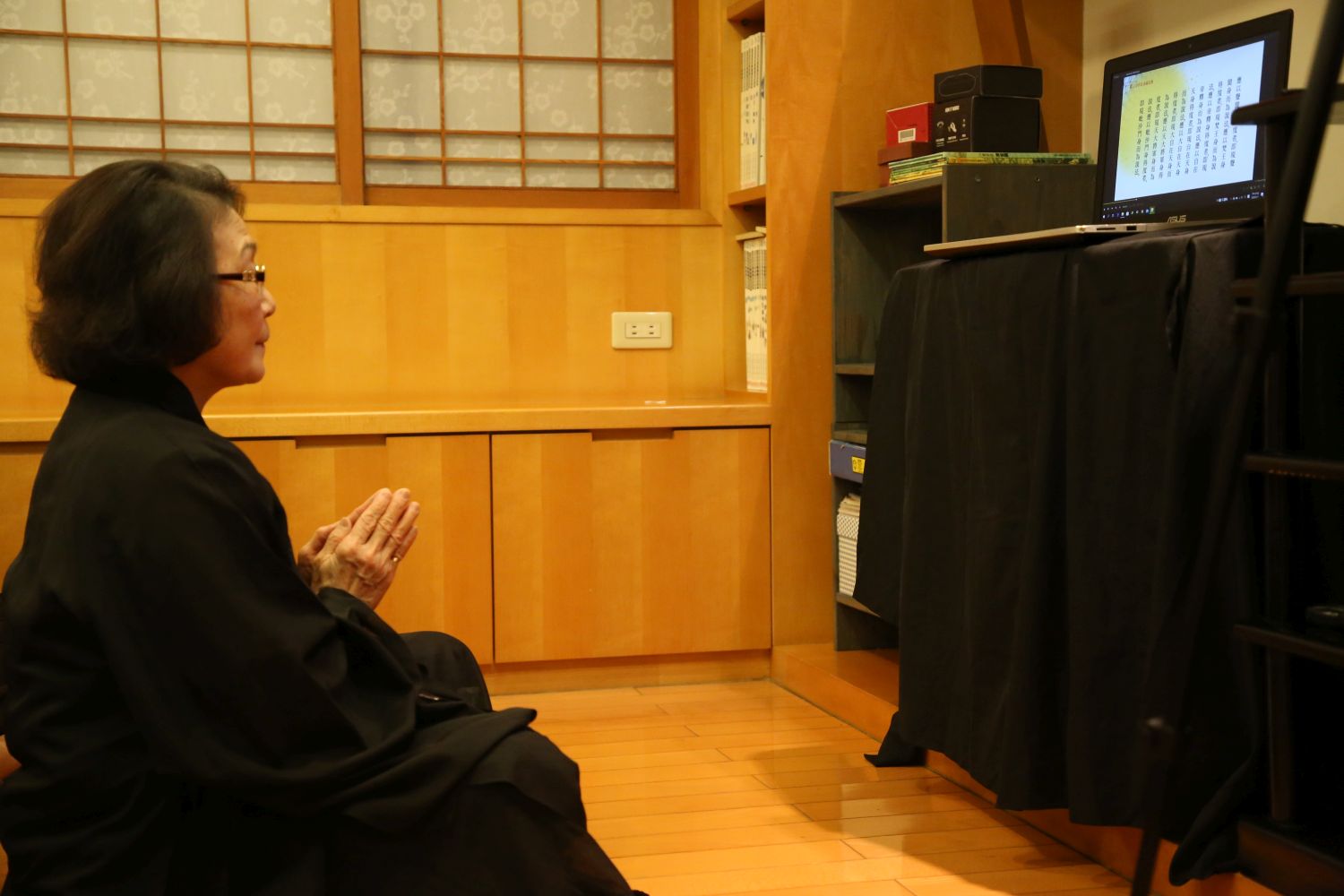Special Topics
Q4: If we are unable to attend a Dharma assembly at a temple or monastery, can we, alternatively, perform the deliverance ritual at home for our deceased relatives or friends?
 A: Since a deliverance service requires a monastic presiding over the ritual, by conducting it at home we can at most chant sutras, recite the Buddha's name, perform repentance prostration for the deceased, thereby creating and dedicating the merit to them.
A: Since a deliverance service requires a monastic presiding over the ritual, by conducting it at home we can at most chant sutras, recite the Buddha's name, perform repentance prostration for the deceased, thereby creating and dedicating the merit to them.If we don't have a Buddha hall at home, we can first find a clean, tidy space with good lighting and ventilation to be our altar. It is best if we can also prepare a table to place the Buddha statue, together with fresh flowers and fruits as an offering. Alternately, simply preparing a glass of fresh water as an offering and burning some incense will do. Before the ritual it would be ideal if we could take a shower and consume only vegetarian food to signify purification of our body and mind. When everything is set up and ready, we can then proceed to the Emperor Liang Repentance Ritual or the Earth Treasury Repentance Ritual, performing the recitation and prostration. Depending on the length of the repentance text, we can complete the recitation in one or multiple sessions, according to our available time and at our convenience. If performed in multiple sessions, we need only carry on our recitation from where we left off previously, instead of starting from the beginning. But towards the end of every session, we should always perform merit dedication.
We can certainly recite Buddhist prayers and scriptures to accumulate more merits for our deceased friends and relatives, as well as our karmic creditors, whether at home or at a Buddhist temple. However, doing so at a temple or monastery generates more power, since it includes the collective mindfulness of a group of practitioners jointly praying for the deliverance of sentient beings in the ten directions of the Dharma realm. Thus, reciting Buddhist prayers and scriptures collectively within a temple or monastery setting becomes more effective than doing so individually at home.
Related articles:
Deliverance Service Benefits Both the Living and the Deceased
The Seventh Lunar Month Dharma Assemblies (I): The Ullambana Assembly – Repay Our Parents' Kindness with Merit Transfer
Dharma Assemblies in Lunar July (II): Yogacara Ulka-mukha Dharma Service to Save Hungry Ghosts from Suffering
Dharma Assemblies in Lunar July (III): Practicing Repentance at Emperor Liang’s Repentance Eliminates Delusion, Karma, and Suffering
Q1: Where will our relatives go after death? If they are already reborn, would our prayers for the deceased help them?
Q2: Is it necessary to participate in Dharma assemblies if they are not performed for the deliverance of a deceased relative?
Q3: Why does Buddhism maintain that care and concern for the deceased can be conveyed through Dharma assemblies?
Q4: If we are unable to attend a Dharma assembly at a temple or monastery, can we, alternatively, perform the deliverance ritual at home for our deceased relatives or friends?
Q5: How do we go about dedicating the merit? Can our deceased relatives actually receive the merit that is being dedicated?
Resource: Issue 240 of Humanity Magazine, Dharma Drum Publishing Corporation
Translation: Cheng-yu Chang (張振郁)
Editing: Keith Brown, Chiacheng Chang (張家誠)
